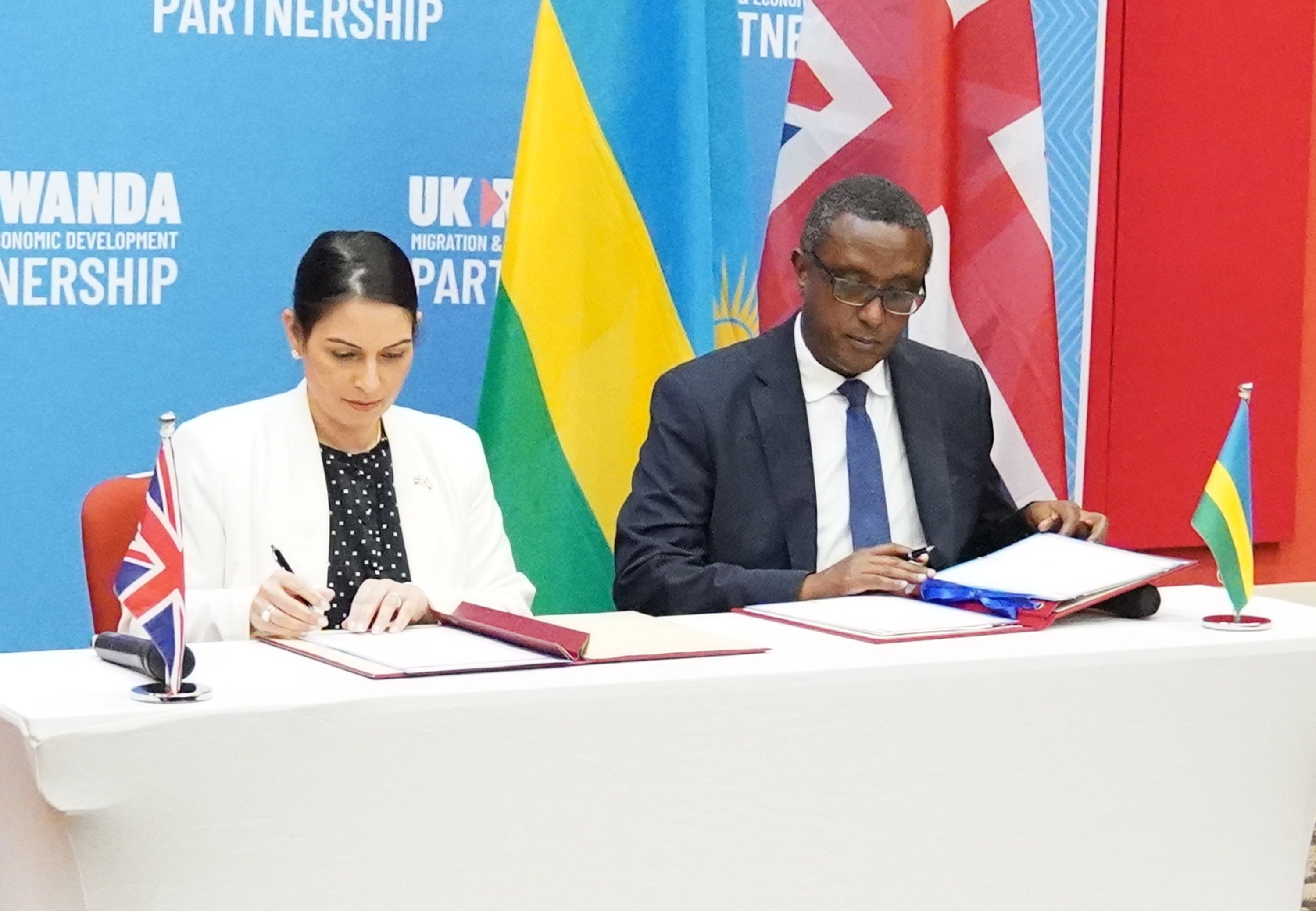Charities vow to ‘see the government in court’ over Rwanda deal after selection guidance published
Child asylum seekers excluded from scheme but government has not officially ruled out Ukrainians

Charities have said they will “see the government in court” after it published official guidance for selecting asylum seekers to send to Rwanda.
A flurry of legal letters in recent weeks had demanded details of who will be eligible for removal under Priti Patel’s new scheme.
The Home Office has made guidance for individual cases public but refused to confirm if specific groups of people are affected, saying the information could be used by people smugglers.
The UN Refugee Agency has vocally opposed the Rwanda deal, saying it “evades international obligations and is contrary to the letter and spirit of the Refugee Convention”.
Groups Care4Calais, Detention Action and the PCS civil service union – which represents Border Force and Home Office staff – argue the plans are unlawful.
The groups said they would continue their joint legal action following the publication of official guidance.
Bella Sankey, the director of Detention Action, said: “This neo-colonial deal is an embarrassment, trading black and brown refugees with a foreign government that the Home Office knows full well has a terrible human rights record.
“People are already being harmed, living in fear of receiving these letters [notifying them of removal], including asylum-seeking families with children. We'll see the government in court.”
Clare Moseley, founder of Care4Calais, questioned why the government would not consider the “cheaper, easier and more humane option” of allowing refugees to apply for asylum from France so they do not have to cross the Channel.
“The British people’s welcome of Ukrainians fleeing war is a clear demonstration of our compassion for refugees,” she said.
“The Rwanda plan is cruel and unfair, and it will be unworkably expensive. Challenging it in court is, unfortunately, the only way we can ensure proper scrutiny of a badly laid plan that will shame our country, and so we will be pressing ahead with this action.”
Separately, the charity Freedom From Torture had demanded disclosure of underlying policy documents and risk assessments.
Chief executive Sonya Sceats said: “Most people in this country want the UK to help people fleeing torture, war and persecution, but this neo-colonial scheme instead pushes our responsibility for protecting them onto a developing country in exchange for cash. It is immoral, unworkable and flies in the face of our international legal duties, which is why we are preparing a legal challenge to the policy.”
A Home Office document published on Monday night said anyone who has come to the UK “illegally” since 1 January can be considered for deportation to Rwanda.
“In broad terms, the rules allow asylum claims to be declared inadmissible and not substantively considered in the UK, if the claimant was previously present in or had another connection to a safe third country, where they claimed asylum or could reasonably be expected to have done, provided there are reasonable prospects they can be removed in a reasonable time to a safe country,” it added.
That includes people who have lived for short periods in EU countries while journeying towards the UK, and can no longer be sent back to nations such as France because the necessary mechanism was lost during Brexit.
The Home Office said unaccompanied child asylum seekers are “presently” excluded from being sent to Rwanda, as are EU nationals. There was no mention of specific nationalities, such as Ukrainians, being exempt.
The document said removals “are intended to deter people from making dangerous journeys to the UK to claim asylum”, adding: “In particular, but not exclusively, this is aimed at deterring arrivals by small boats.”
Crossings have hit record levels, with the number of people arriving in the UK on small boats so far this year standing at almost 8,000 – more than triple the figure for the same period in 2021.
Separate guidance published by the Home Office stated that Rwanda is “a safe country to relocate people to”, although an assessment carried out before the UK-Rwanda agreement found “some concerns with its human rights record around political opposition to the current regime, dissent and free speech”.
The department said it would carry out a case-by-case risk assessment when determining someone's eligibility for relocation and take any vulnerabilities, including disabilities, sexual orientation and gender reassignment status, into account.
A Home Office spokesperson said: “Our new Migration and Economic Development Partnership with Rwanda fully complies with international and national law. We will defend any legal challenge robustly.”






Join our commenting forum
Join thought-provoking conversations, follow other Independent readers and see their replies
Comments